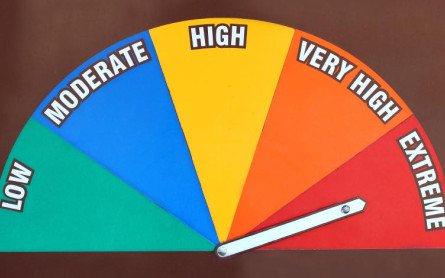
Planning & budgeting
Saving & investing
KiwiSaver
Tackling debt
Protecting wealth
Retirement
Home buying
Life events
Setting goals
Money tracking
Plan your spending with a budget
Getting advice
Studying
Get better with money
What pūtea beliefs do you have?
How to build up your emergency savings to cover unexpected costs
How to save your money
How to start investing
Find a financial adviser to help you invest
Your investment profile
Compound interest
Net worth
Types of investments
Term deposits
Bonds
Investment funds
Shares
Property investment
How KiwiSaver works and why it's worth joining
How to pick the right KiwiSaver fund
Make the most of KiwiSaver and grow your balance
How KiwiSaver can help you get into your first home
Applying for a KiwiSaver hardship withdrawal
How to use buy now pay later
What you really need to know before you use credit
How to get out of debt quickly
Credit reports
Know your rights
Pros and cons of debt consolidation
Credit cards
Car loans
Personal loans
Hire purchase
Student loans
Getting a fine
What happens if I start to struggle with moni?
How to build up your emergency savings to cover unexpected costs
Cryptocurrency
How to protect yourself from fraud and being scammed
About insurance
Insurance types
Insuring ourselves
Wills
Enduring powers of attorney
Family trusts
Insuring our homes
Losing a partner
Redundancy
Serious diagnosis
How to cope with the aftermath of fraud
Separation
About NZ Super – how much is it?
When you’re thinking of living in a retirement village
How to plan, save and invest for retirement
Manage your money in retirement
Find housing options in retirement
Four approaches to spending in retirement
Planning & budgeting
Saving & investing
How to build up your emergency savings to cover unexpected costs
How to save your money
How to start investing
Find a financial adviser to help you invest
Your investment profile
Compound interest
Net worth
Types of investments
Term deposits
Bonds
Investment funds
Shares
Property investment
View all
KiwiSaver
Tackling debt
How to use buy now pay later
What you really need to know before you use credit
How to get out of debt quickly
Credit reports
Know your rights
Pros and cons of debt consolidation
Credit cards
Car loans
Personal loans
Hire purchase
Student loans
Getting a fine
What happens if I start to struggle with moni?
View all
Protecting wealth
How to build up your emergency savings to cover unexpected costs
Cryptocurrency
How to protect yourself from fraud and being scammed
About insurance
Insurance types
Insuring ourselves
Wills
Enduring powers of attorney
Family trusts
Insuring our homes
Losing a partner
Redundancy
Serious diagnosis
How to cope with the aftermath of fraud
Separation
View all
Retirement
Home buying
11 August 2015
Reading time: 3 minutes
Posted by Tom Hartmann,
0 comments

When it comes to choosing how much risk to take while investing, I can’t help but think of relationships. Call me a romantic if you like.
There is always a certain amount of risk involved when we open up our hearts to someone. The bull can get in the china shop; we can get hurt along the way.
But there’s also a fair amount of risk for the future if we don’t open up, wouldn’t you say? It can be the difference between something fleeting or a lifetime of happiness together. Being too cautious early on could lead to ending up alone later.
With investing, this is the classic “now risk” vs “later risk” – taking greater risks now means reducing them later, and vice versa: taking too small a risk now means it will loom larger down the line.
There is always some form of risk with investing. Don’t let anyone convince you otherwise! But taking more in the short term can lead to more growth in the long term. Conversely, not taking enough now could limit our financial security later.
Risk comes in many forms, but let’s keep things simple. In essence, risk is the chance that you might not reach your goal. Wherever you set it – putting together a house deposit, your child’s education fund, a retirement nest egg – the question is, what are the chances of you not making it across that line?
Experts like fund managers spend hours gauging the probabilities. With managed funds like KiwiSaver, taking on more risk usually involves dialling up the proportion of growth assets in your fund – like shares and property, which typically have greater returns in the long run. They come with a number of risks – one is that they tend to have more ups and downs in value (“volatility risk”) along the way.
So the “now risk” with shares and property is indeed greater in the short term than with income assets like bonds or cash. However, the “later risk” of not having enough to reach your goal – or having your money whittled away by inflation – is less with growth assets because of the better results you can get over a longer period of time.
So what level of risk have you set in your KiwiSaver fund? Have a look.
Most of us have an allergy to risk – we naturally tend to put it off for the future. Somehow we need to overcome that.
With relationships, thankfully there’s this thing called falling in love. With investing, I’d say successful investors somehow manage to “fall into it” in some way, too.
Use verification code from your authenticator app. How to use authenticator apps.
Code is invalid. Please try again
Don't have an account? Sign up
Or log in with our social media platforms


A free account gives you your very own space where you can save your tools and track your progress as you get ahead.
Or sign up using Google:



Comments (0)
Comments
No one has commented on this page yet.
RSS feed for comments on this page | RSS feed for all comments